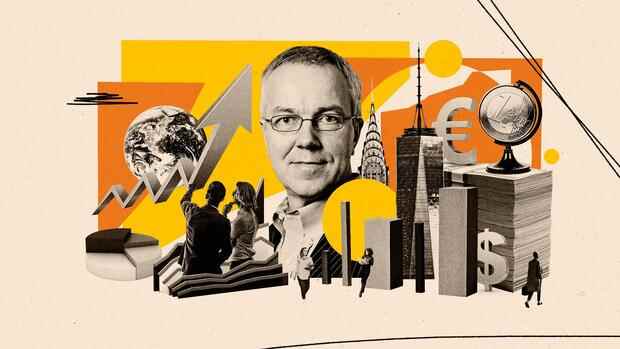The growing criticism from top bankers like JP Morgan boss Jamie Dimon (“Bitcoin is worthless”) and top economists like the Nobel Prize winner in economics Paul Krugman (“Crypto is the new subprime”) has put artificial currencies under selling pressure since the end of 2021. Bitcoin, for example, has lost around a third of its value since November 2021. However, reports of an imminent crypto death seem exaggerated.
Top jobs of the day
Find the best jobs now and
be notified by email.
On the contrary: The fact that crypto companies are now appearing alongside traditional brands such as Budweiser and General Motors at the Super Bowl shows that cryptic investments have also reached private investors. Many are already talking about the “Crypto Bowl”.
Four out of ten Super Bowl viewers are between the ages of 18 and 49, which is exactly the demographic crypto companies are targeting. In particular, many younger, tech-savvy and libertarian investors lost confidence in traditional investments, banks and government regulators after the 2008 financial crisis. They’re looking for cool alternatives.
History repeats itself twice, first as tragedy, then as farce, as Karl Marx put it. This could also apply to the crypto boom. In any case, the current hype is strongly reminiscent of the “Dotcom Super Bowl” of 2000. Back then, tech start-ups like Pets.com booked a fifth of all commercials. A little later, the first internet bubble burst, and with it the dreams and savings of many private investors.
This is also the danger today of the largely unregulated, confusing and enormously volatile crypto market, which not only calls into question the conventional concept of money and thus the monetary sovereignty of central banks and states.
As so-called NFTs (Non-Fungible Tokens), cryptocurrency is also shaking up the sports and art world and even reaching the payroll of the New York Mayor. The newly elected incumbent Eric Adams wants to have his first three salaries paid out in artificial currencies to make the Big Apple the crypto capital of digital money.
Adams isn’t the only celebrity cheering on the crypto hype. World-famous film and sports stars such as Matt Damon, Tom Brady, Reese Witherspoon, but also entrepreneurial icons such as Elon Musk make Bitcoin, Ethereum and Co. cult products. “When you see celebrities adopting and using something new, you usually reach the tipping point where it spills over into the masses,” marketing professor Marc Beckman told the Washington Post.
Now you might think of Matt Damon as a cool guy, Tom Brady as an outstanding quarterback and Elon Musk as a genius entrepreneur. However, they all owe their fame and fortune not to the wisdom of their financial investments, but to other talents.
So when Damon, as a “brand ambassador” for the Crypto.com platform, compares investing in artificial currencies with going to Mars, or Witherspoon announces with a dash of feminism: “Crypto will stay. I am committed to supporting the pioneers of NFTs and encouraging more women to join the discussion.” then caution is advised for private investors.
Only cops, hardly any bears
Numerous studies have shown that among so-called “influencers” there are usually only bulls and hardly any bears. Crypto investments, like most other financial assets, are based on the hope that someone will be willing to pay more for them than they cost. Movie stars and top athletes have plenty of money to make this bet.
More: Bitcoin Fails at $45,000 – Subdued Crypto Market Sentiment
